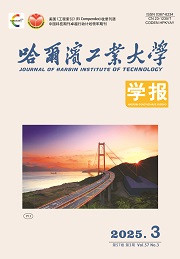| 摘要: |
| 为解决面向工业实时控制的无线传感器网络在性能和能量效率的平衡问题,提出了一种能效模型的量化评价和优化设计方案.该方案通过引入反馈控制的思想,运用层次分析法构建基于服务质量约束的能效模型评价方法,采用加权和的综合量化指标权重计算服务的可用性;在此基础上,给出了基于效用函数的优化模型并设计了一种多度量目标优化算法.仿真结果表明,该方法能对网络协议进行调整优化满足有限能量条件下的服务质量约束,保证数据传输可靠,降低能量消耗,延长网络生存时间. |
| 关键词: 无线传感器网络 服务质量 节能 能量效率 量化评价 |
| DOI:10.11918/j.issn.0367-6234.2014.05.014 |
| 分类号:TP393 |
| 基金项目:江苏省科技支撑计划资助项目(BE2011173);福建省自然科学基金资助项目(2013J01240);江苏省未来网络前瞻性研究资助项目(BY2013095-5-03); 江苏省“六大人才高峰”高层次人才资助项目(2011-DZ024). |
|
| Optimization and quantitative evaluation mechanism of energy efficiency model on wireless sensor networks |
|
JIANG Wenxian1,2,3, CHENG Guang2,3
|
|
(1. College of Computer Science and Technology, Huaqiao University, 361021 Xiamen, Fujian, China;2. School of Computer Science and Engineering, Southeast University, 211189 Nanjing, China;3. Key Laboratory of Computer Network and Information Integration the Ministry of Education, Southeast University, 211189 Nanjing, China)
|
| Abstract: |
| To solve the problem of the balance between performance and energy efficiency on real-time control and industry-oriented wireless sensor networks, we propose a quantitative evaluation and optimal design scheme of energy efficiency model. Firstly, by introducing the feedback control theory, we construct an evaluation method of energy efficiency model under the QoS constraint using an analytic hierarchy process and compute service usability using comprehensive quantitative metric weights based on weighted sum. Then, based on this, we provide an optimization model based on a utility function and design a multi-metric optimization algorithm. The simulation results show that this method can adjust and optimize the network protocol, satisfy QoS constraint under the condition of limited energy, ensure reliable data transmission, reduce energy consumption and prolong network life-time. |
| Key words: wireless sensor networks quality of service energy-saving energy efficiency quantitative evaluation |







